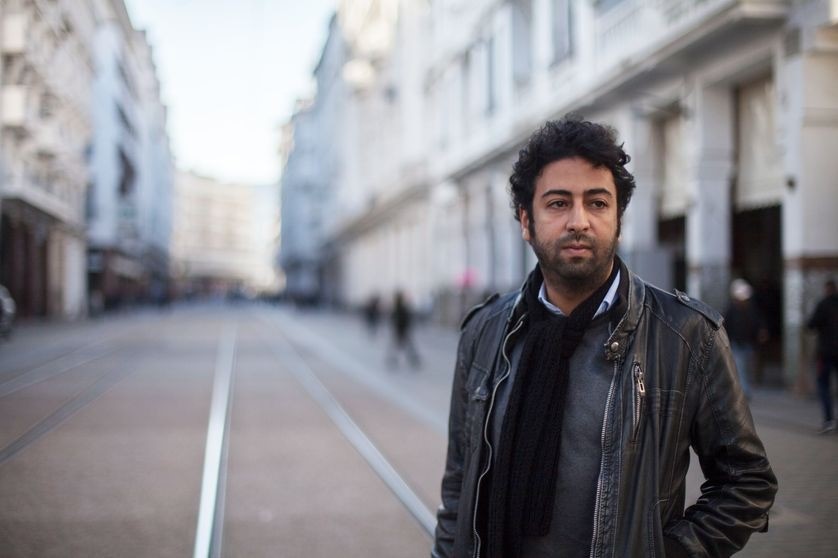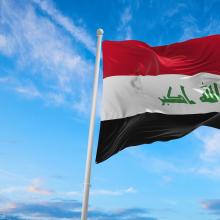July 29, 2020

The undersigned civil society organizations call for an immediate and unconditional end to the intimidation and harassment of independent Moroccan journalist, Omar Radi, who has been summoned by police to appear for interrogation seven times over the past several weeks. Radi has been targeted by the authorities for his critical investigations and reporting, as one of the few journalists in Morocco who covers the corruption and business relations of the monarchy and its networks. Radi had been subjected to a sophisticated spyware attack, whereby his private communications were intercepted by a third party as documented in a public report by Amnesty International. Since the release of the report, the Moroccan government has undertaken an intimidation and harassment campaign, and has accused Radi of working with Britain’s Secret Intelligence Service, among other unsubstantiated allegations.
The most recent and ongoing intimidation of Radi, which began in early June 2020, is part of a series of attacks on constitutionally protected rights and freedoms in Morocco, demonstrating a clear deterioration in the country’s respect for freedoms of press, expression, and assembly. This past year has seen a crackdown on rappers and social media influencers for criticism of the king or other authorities, and, in addition to Radi, journalists Hajar Raissouni and Taoufik Bouachrine have been sentenced to prison. According to the Committee to Protect Journalists and Reporters without Borders, the kingdom has seen a continuing degradation in press freedom over the past few years.
A renowned journalist, Radi, has contributed as an investigative reporter to Le Journal, Lakome, Le Desk, Telquel, Medias24, and others; he has also contributed to major international media reports as a local correspondent or stringer. He has been an outspoken critic of government corruption, and much of his investigative work has aimed to uncover evidence of misconduct among government officials and expose the financial holdings of the monarchy.
Radi has frequently been targeted by the government for his work and political activism, including his influential role in Morocco’s February 20 movement, during which time he was a member of the opposition website Mamfakinch. He has also been a vocal supporter of the Hirak movement for greater rights and recognition in Morocco’s marginalized Rif region. Previously, on 26 December 2019, Radi was detained over a tweet in which he criticized a judge’s sentencing of Hirak activists. He was eventually charged with “insulting a public servant” and handed a four-month suspended prison sentence and a 500 Dirham fine (around $50). Amnesty’s report indicated that Radi’s phone was targeted by spyware created by the Israel-based technology firm NSO Group (the same controversial software used to target associates of Jamal Khashoggi).
Radi has also been subject to a coordinated defamation campaign. On 7 June 2020, ChoufTV, a media outlet with close ties to security services, began publishing a series of articles defaming Radi and sharing private details about his personal life. Then on 5 July 2020 ChoufTV camera operators harassed and confronted Radi and another independent journalist, Imad Stitou, outside of a Casablanca pub. Police arrived swiftly and arrested the Radi and Sitou. The cameramen from ChoufTV went on to press charges and published inflammatory photos and reportage of Radi from the incident, describing him as “drunk.” Radi and Stitou were released after being held overnight pending investigation on charges of verbal assault, public intoxication, and filming without a license, and the two are set to appear before a prosecutor on September 24.
Radi continues to be at risk of imminent arrest under fabricated charges of espionage, which carry a sentence ranging from five years in prison to the death penalty (currently under moratorium in Morocco). His case comes at a time when governments are using the COVID-19 pandemic to close civic space and justify restrictions on freedom of assembly, association and expression. In Morocco, the restrictions have resulted in more than 91,000 being charged with lockdown violations, and over 6,000 arrested, including for spreading “false information,” and the period has seen government attempts to pass a restrictive and controversial bill governing social media. Furthermore, these detentions come at a time when international bodies and civil society organizations have called for urgent action to reduce prison populations as prisoners are held in close quarters and without proper health care access, making them particularly vulnerable to COVID-19.
Given the risks to Omar Radi, the undersigned call for the UN Special Rapporteurs (UNSR) on the Situation of Human Rights Defenders, the UNSR on the promotion and protection of the right to freedom of opinion and expression, European Court, European Commission, U.S. State Department, and Members of the U.S. Congress to:
- Call for Moroccan authorities to immediately and unconditionally end the intimidation and harassment of Moroccan journalist Omar Radi; strongly denounce the arbitrary summons and false accusations leveled against him by authorities; and call for his travel ban to be lifted;
- Call for authorities to transparently investigate the case of harassment on 5 July 2020 between cameramen and Radi and Stitou; ensuring that international best practices are adhered to in the September court appearance;
- Strongly denounce the use of NSO spyware to target journalists, bloggers, artists, and civil society activists in Morocco;
- Denounce the use of the COVID-19 pandemic to crackdown on civic freedoms, including to association, peaceful assembly and expression.
The undersigned,
CIVICUS
MENA Rights Group
Committee to Protect Journalists
Reporters without Borders
IFEX
PEN America
The Freedom Initiative
Attac Maroc
Project on Middle East Democracy






